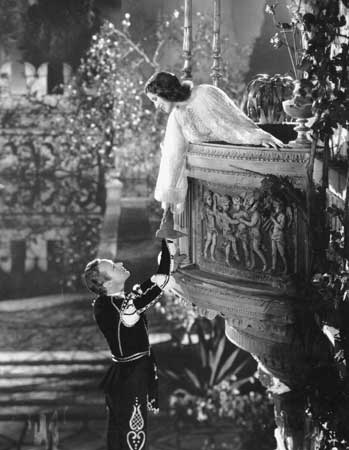(Thanks to Kathy Acheson for this guest post.)
My first-year Shakespeare class (ENGL 190) is spending the first half of term building the storylines for a game called “Who Killed Romeo and Juliet?” for the Stratford Festival. The aim is to attract young people to the Festival. The game is one of several we’re working on, and we’re focusing right now on R and J because it’ll be in performance at Stratford next season.
Wait – don’t we always already know who killed Romeo and Juliet, even before we see the play? And if we missed the meaning of “lamentable” or “tragedy” in the title, the Chorus makes sure we know that “A pair of star-crossed lovers take their life” in it. But one of the powerful features of the play is the way that we feel that the deaths at the end are inevitable at the same time that we feel they didn’t have to happen. We want an explanation, because Romeo and Juliet themselves aren’t enough of a reason for their deaths.
When we look at the play-world in which Romeo and Juliet live, we see forces pressing upon them, driving them towards their ends. Like so many of Shakespeare’s tragedies, Romeo and Juliet dramatizes what happens when good people try to act virtuously in a corrupt and violent world. Ask Hamlet, King Lear, Othello – they’ll tell you. In R and J, the Nurse and the Friar mean well, but their views of sex and marriage, and their willingness to help the lovers get together, hurt the chances that Romeo and Juliet will survive into ripe old age. Lord and Lady Capulet drive Juliet to extreme action with their plans for her to marry Paris (or be disowned). The rivalry between the Capulets and the Montagues causes violent, wasteful death, and pits Juliet’s family against Romeo’s. Romeo is obsessed with love, and the kind of love he likes bears an uncanny resemblance to death.
In our classroom we’ve had visits from Andrea Jackson, the Director of Education at the Stratford Festival, and Andrew Matlock, CEO of Industrycorp (a game-building company in Kitchener). Andrea talked to us about the rich range of programs and activities the Festival has for young people. According to Andrea, the most popular features of Shakespeare for young people are the insults (“Thou whoreson zed, thou unecessary letter!”) and swordfighting. Andrew talked to us about game design, and worked through questions the class had about the setting of our game, the type of game it will be, whether it would have levels, how it would be concluded, how to encourage replay, and what the game design team needs from us.
The students are working on one of five threads (the Nurse, the Friar, Lord and Lady Capulet, gang rivalry, and Romeo) and for each they have to assemble evidence that their character or group had motive, means, and opportunity to kill Romeo and Juliet. The evidence includes passages, locations, objects, interactions with other characters, and social contexts. A sixth group is working on mapping the game in time and space. For each of their topics, the students have to come up with puzzles that the player has to complete before a clue can be unlocked, a level completed, or a tool acquired.
So far it’s been a lot of fun and we are learning things about Romeo and Juliet that would be hard to learn otherwise. And the students are showing that they have both amazing imaginations and exceptional experience playing games – they know things I could never learn in a lifetime! I’m awestruck every day at how capable and committed they are. Our trusty assistant, PhD student Matthew Gaster, helps us keep things together and will produce the final game design document that we’ll pass over to Industrycorp (turns out he knows a lot more about games than I do too). We’ll celebrate completing this project with a field trip to Stratford on October 19th and – with luck – the game will be ready to play next year.



Will you be producing the game for high schools to use? What a brilliant way to encourage young minds to enter Shakespeare’s world?
This game, and the others the group are working on, are intended for 11 to 15 year olds, which is typically when young people are introduced to Shakespeare in school. The challenge is to make them exciting and entertaining as games, while also having pedagogical value. The other games include a stage manager game, a fighting game set in the streets of Verona, and a set of small, obstacle-based games themed around R and J. The larger project to which these belong is the digitization of the Stratford archive and Festival; that project in turn belongs to a broader set of digitization projects in Canadian cultural milieus and institutions.
I should have said that I am very grateful to the Stratford Festival for funding the RA position that Matthew is holding, and to Neil Randall and other colleagues for involving me and my class in this adventure.
More evidence that we have the best English department in the world!
…and a department with imaginative and innovative scholars, plus very good writers to boot!